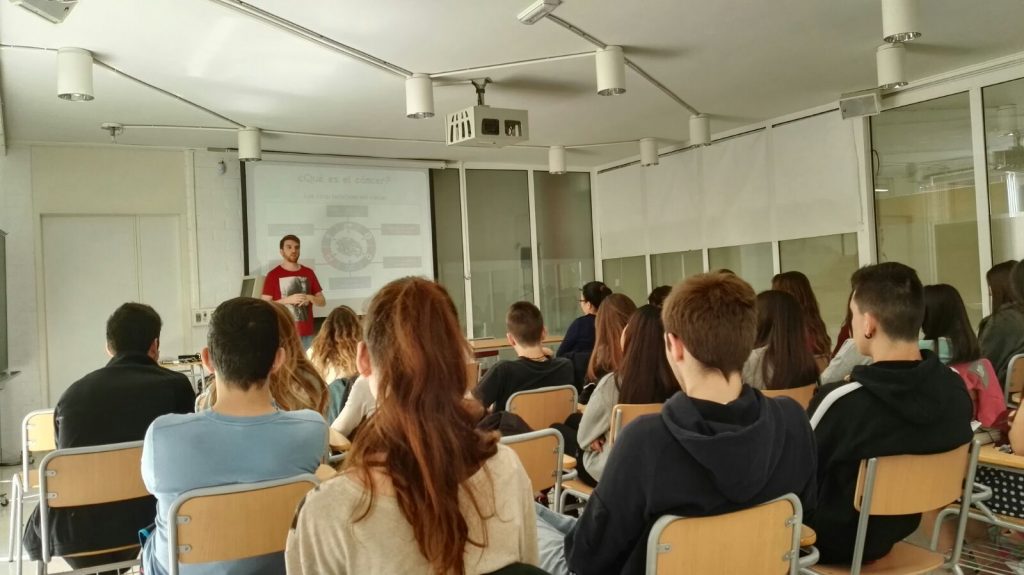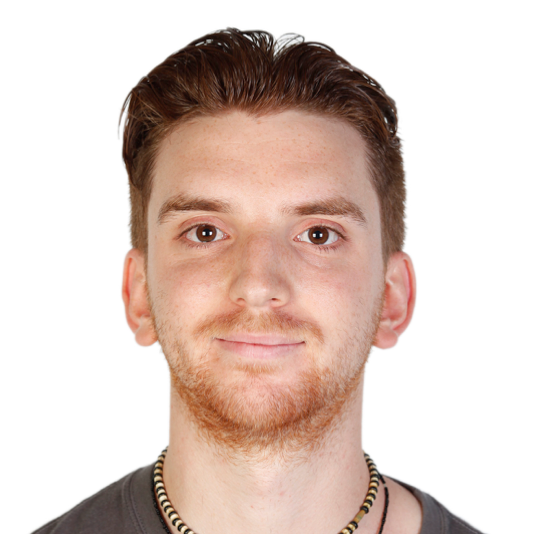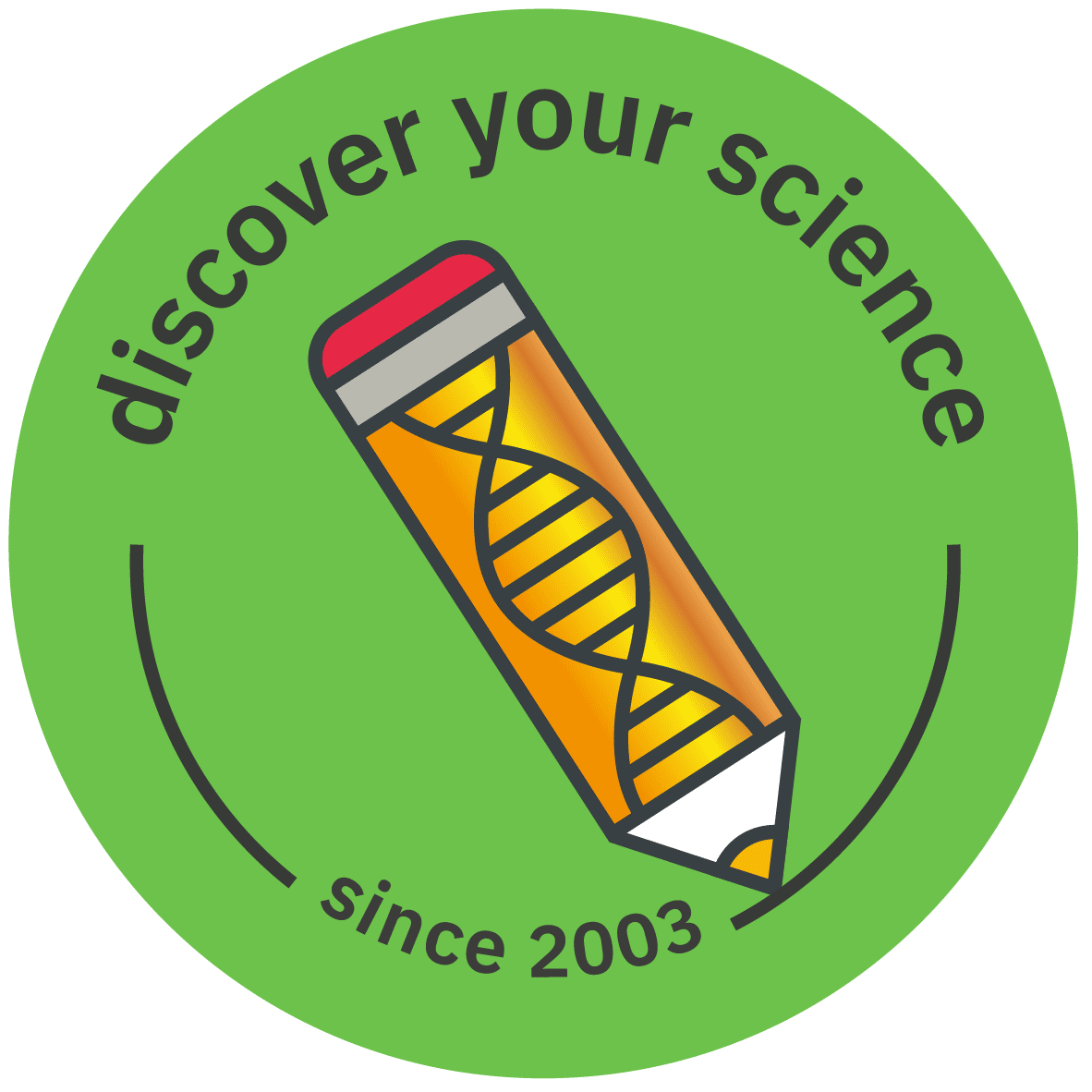EMBL School Ambassador Pablo Luján Miralles
Country: Spain
Profile
Hi! I am Pablo Luján Miralles and I come from Valencia, a really nice city in the middle east of Spain. I am a third year PhD student in Dr. Maja Köhn’s group, which belongs to the Genome Biology Unit of EMBL Heidelberg. In Dr. Köhn’s lab, biologist and chemist work together to study two different phosphatases: PP1 and PRL-3. I am a biochemist working on PRL-3 biology, trying to identify which could be the phosphatase substrates in order to explain the role of this specific gene in tumor development. I did my bachelor on Biochemistry at the University of Valencia. Thanks to the Erasmus Program, I had the opportunity to do my last year of bachelor at the University of Leeds in the UK. Afterwards, I did a Master on Molecular Approaches for Biomedicine, while I spent one year in Dr. Pascual Sanz’ lab in the Instituto de Biomedicina de Valencia (IBV) doing my Master Thesis on the study of the Laforin phosphatase substrate. Before coming to EMBL, I also worked as a research assistant in Dr. Quique Pérez-Payá’s lab in the Centro de Investigación Príncipe Felipe (CIPF) in Valencia. There, I developed Caspase-9 activators as therapeutic drugs for breast cancer during one year. I wanted to become a scientist since I was a child, even though I wasn’t sure about what a scientist exactly does. That lack of knowledge about scientific careers is quite common in our society and I believe it is the scientific community’s responsibility to bring to light these aspect and put wrong perceptions right. EMBL School Ambassador is an amazing platform which scientist can use to go back to high school and show the young workers of tomorrow what being a scientist means. With the aim of bringing the science closer to the students I have taken benefit of this program – with really good results.
Diary
Becoming a scientist was always my first and only choice on the difficult pathway of realising and reaching the job goal every student has during high school and at university. I had that clear idea thanks to the summer days I spent with my mother in her high school chemistry-teaching laboratory. However, many students that could have a silent small scientist inside themselves might never have the chance to have this curiosity. The EMBL School Ambassadors programme is a powerful platform to bring scientist to schools and help them share their experience with young pupils – and I didn’t want to miss this wonderful opportunity to share my experience with Spanish students.

As a sign of gratitude, I was wondering about going back to my own high school and meet my old teachers and the new student generation. Unfortunately, it was not possible but it was equally exciting to go to the high school where my father is a math teacher, the Instituto Vicenta Ferrer. Around 40 students between 16 and 18 years old came ready to actively listen to the talk. Since they are right before going to university and they must decide which degree they want to do in the next months, I focused the talk on what a scientist really does and how amazing it could be developing your own project with the aim of discovering new things in the difficult field of biology. I also discussed what usually is the canonical pathway people follow in science to become a group leader, emphasizing the importance of university marks, publications and hard work. Finally, I took the chance to talk about my own research project in a way that was easy for the students to follow and took into account the biology knowledge they have at this stage. Surprisingly, both teachers and students attending found this last part the most interesting. They reported back that it was really fascinating to realize that every concept they study in school came from scientists’ work. They were able to put a face to the people behind those concepts and figured that a person like them can have the opportunity to bring more light to that knowledge. They also mentioned that it was really helpful to study the subjects with a different perspective and motivation. Comparing scientific concept like posttranslational modifications with frozen yogurt toppings or the impact factor of the journals with the football league was really useful to keep the attention of the students and to show that we, the scientists, are not different from them and that we were in their position not a very long time ago. Also, the students were surprised by the wide use of GFP in microscopy and cell imaging videos. On the other hand, the students highlighted their worries about getting good marks at the university and the need of studying English, not just in the scientific field, but as a general job requirement.
I really had a great time during the lecture and the question session afterward. Since most of them had other lectures after my talk, one teacher invited me to his lecture time to proceed with the questions with the pupils. I was really well received in the high school and I think I achieved the main purpose of my talk: describe what being a scientist means. Unfortunately, I don’t know if I could wake up the silent scientist inside any of them, but I am happy to repeat it anyway. Personally, it was an excellent experience. I learnt a lot, not only about how to give a lecture like that – completely different to what I am used to – but also to connect with the young students and getting to know their motivations and concerns.

